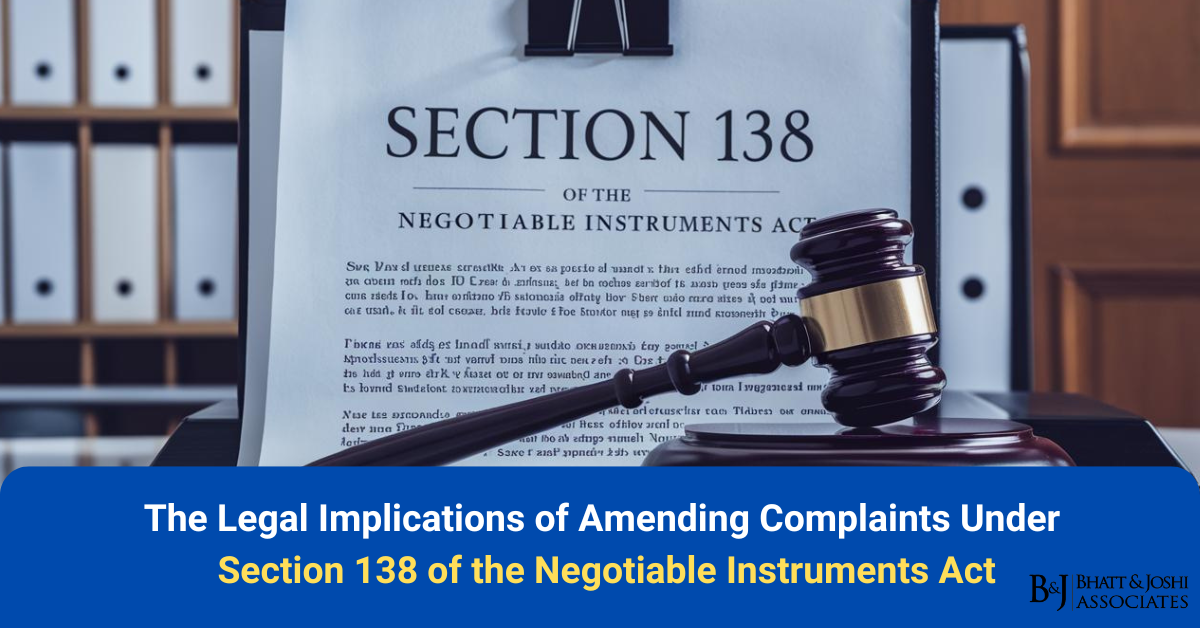Introduction
The Rajasthan High Court’s recent decision allowing the Amendment of a Complaints Under Section 138 of the Negotiable Instruments Act (NI Act) has significant implications for the prosecution of cheque dishonour cases. This article explores the legal framework, key judgments, and implications of this decision, providing a comprehensive understanding of the power to amend complaints under the NI Act.
Case Title
Mahaveer Prasad Suman v. Lalit Mohan Sharma
Background
In the case at hand, the petitioner sought to amend the complaint and the affidavit annexed to it to correct typographical errors related to the dates of presentation and dishonour of the cheque. The trial court and the revisional court had dismissed the petition, prompting an appeal to the High Court.
Key Legal Provisions and Judgments
- Section 138 of the NI Act: This section deals with the offence of dishonour of cheque due to insufficiency of funds or other reasons. The complainant must issue a legal notice within 30 days of receiving the information about the dishonour and file a complaint within 30 days after the expiry of the 15-day notice period.
- Amendment of Complaints: Although there is no explicit provision in the Criminal Procedure Code (CrPC) for amending complaints, the Supreme Court in S.R. Sukumar v. Sunaad Raghuram held that courts could allow amendments to correct curable infirmities, provided no prejudice is caused to the other party. The Court stated, “If the amendment sought to be made relates to a simple infirmity which is curable by means of a formal amendment and by allowing such amendment, no prejudice could be caused to the other side, notwithstanding the fact that there is no enabling provision in the Code for entertaining such amendment, the Court may permit such an amendment to be made.”
- Aneeta Hada v. Godfather Travels and Tours Private Limited: This case established that for a director or authorized signatory to be prosecuted under Section 138 NI Act, the company must also be named as an accused. This judgment underscores the need for specific averments in the complaint, which can be corrected through amendments if they are merely procedural.
Rajasthan High Court’s Decision on Amendment of Complaints Under Section 138
In the current case, the Rajasthan High Court allowed the amendment, citing that the errors in dates were typographical and did not prejudice the accused. The Court noted that the correct dates were evident from the annexed documents, such as the pay-in-slip and the statement of account, which showed the actual dates of presentation and dishonour.
The High Court observed that the trial court should have considered these documents when taking cognizance of the complaint, thus preventing the errors. It also highlighted that serving the legal notice within the statutory period based on the correct dates indicated that the trial court had implicitly recognized the correct dates.
Implications
- Legal Precedents: This decision aligns with the Supreme Court’s stance in S.R. Sukumar and ensures that procedural errors do not obstruct justice. It reaffirms the principle that amendments should be allowed if they correct minor procedural errors without causing prejudice.
- Practical Considerations: For complainants, this ruling provides a safeguard against procedural dismissals due to typographical errors. It underscores the importance of ensuring that all documents and details in complaints are accurate but provides a remedial measure if genuine mistakes occur.
- Judicial Efficiency: Allowing such amendments promotes judicial efficiency by preventing the dismissal of complaints on technical grounds, thereby enabling courts to focus on substantive issues rather than procedural formalities.
Conclusion: Amending Complaints Under Section 138
The Rajasthan High Court’s ruling in Mahaveer Prasad Suman v. Lalit Mohan Sharma is a significant development in the interpretation of the NI Act, emphasizing the judiciary’s pragmatic approach to procedural errors. By allowing amendments to correct typographical mistakes, the Court has reinforced the principle that justice should not be derailed by minor procedural lapses, provided no prejudice is caused to the accused.














